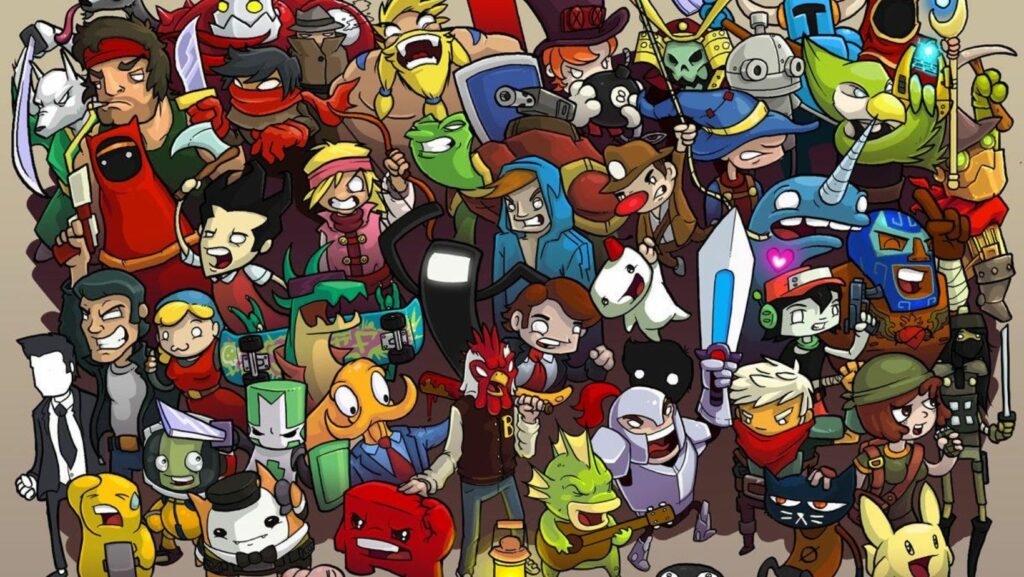How Hard is it to Start an Indie Company for Gaming
Starting an indie gaming company can be an exciting yet daunting journey. How hard is it to start an indie company for gaming? The world of game development is highly competitive, with countless aspiring developers vying to create the next big hit. As I delved into establishing my own indie studio, I quickly realized that the path to success in this industry is challenging.

One of the key aspects to consider when embarking on this venture is the sheer amount of time and effort required. How hard is it to start an indie company for gaming? From conceptualizing unique game ideas to coding, designing, marketing, and testing, every stage demands meticulous attention. Moreover, standing out in a market flooded with games necessitates innovation and a deep understanding of player preferences.
Navigating the financial landscape is another significant hurdle. Securing funding for your indie company can be tough, especially without a proven track record or established connections within the industry. Balancing budget constraints while striving for quality and innovation adds another layer of complexity to launching an indie gaming business.
Understanding the Indie Gaming Industry
When diving into the realm of indie gaming, it’s essential to grasp the unique landscape this industry offers. Unlike traditional game development, indie studios are often smaller teams or even solo developers working on projects that prioritize creativity and innovation over massive budgets. This focus on creative freedom allows for a diverse range of games to emerge, from experimental art pieces to commercially successful hits.

In recent years, the indie gaming scene has experienced exponential growth, fueled by platforms like Steam, itch.io, and mobile app stores that provide accessible avenues for developers to showcase their creations to a global audience. The rise of crowdfunding sites such as Kickstarter has also empowered indie developers to fund their projects independently, bypassing the need for traditional publishers.
One defining characteristic of the indie gaming industry is its emphasis on gameplay mechanics and storytelling rather than high-end graphics or AAA-level production values. This shift in priorities has led to a resurgence of retro-style pixel art games, narrative-driven experiences, and genre-blending titles that push the boundaries of what games can be.
Despite these opportunities for creativity and self-publishing, breaking into the indie gaming market remains a daunting challenge for many aspiring developers. With thousands of new games released each year across various platforms, standing out from the crowd requires not only talent but also effective marketing strategies and community engagement. Building a dedicated fan base through social media, attending gaming conventions, and collaborating with other developers are just some ways indie studios strive to gain visibility in this competitive landscape.
Aspiring indie developers must navigate a complex ecosystem where originality is prized but discoverability can be elusive. Understanding player preferences, market trends, and technological advancements is crucial for success in an industry that thrives on innovation and risk-taking. By staying true to their artistic vision while remaining adaptable to changes in the market, indie studios can carve out their niche and make meaningful contributions to the vibrant world of independent game development.
Challenges of Starting an Indie Gaming Company
Starting an indie gaming company is a thrilling but demanding journey filled with numerous challenges. Here are some key hurdles that aspiring indie developers often face:

- Limited Resources: One of the primary challenges for indie companies is the constraint on resources, both in terms of finances and manpower. Unlike larger game studios, indies typically operate on tight budgets and have limited staff, making it difficult to compete with high-budget productions.
- Market Saturation: The gaming industry is highly competitive, with thousands of games being released each year across various platforms. Standing out in such a crowded market can be a daunting task for indie developers, especially when trying to attract players’ attention among so many options.
- Skill Diversification: Indie game development requires individuals to wear multiple hats. Developers may need to handle not only programming but also art design, sound engineering, marketing, and more. This wide range of skills needed can be overwhelming for small teams or solo developers.
- Time Constraints: Developing a game from start to finish is a time-consuming process that demands patience and perseverance. Indies often struggle with balancing their creative vision with realistic timelines due to limited resources and unexpected challenges that may arise during development.
- Discoverability Issues: Even if an indie developer manages to create an exceptional game, getting it noticed by players can be another significant challenge. With numerous games vying for attention on digital storefronts and platforms, achieving visibility and recognition can be elusive without effective marketing strategies.


